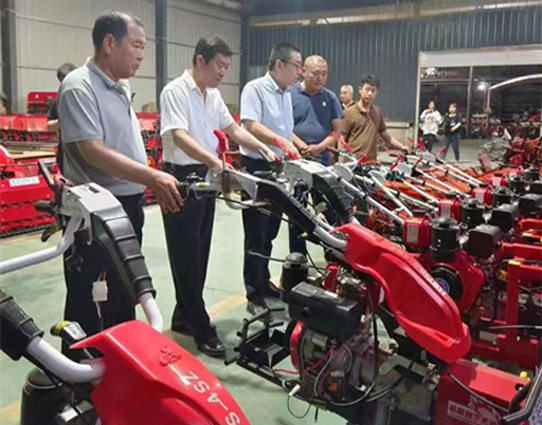poultry windrower
The Evolution and Significance of Poultry Windrowers in Modern Agriculture
Agriculture has seen remarkable advancements in technology, particularly in the way crops and livestock are managed. One essential piece of equipment that has rapidly gained prominence in poultry farming is the poultry windrower. This machinery has transformed the way waste is handled, ultimately enhancing both productivity and environmental sustainability.
Understanding Poultry Windrowers
At its core, a poultry windrower is a specialized piece of farming equipment designed to manage and process poultry litter. Poultry litter, which consists of bird droppings, bedding material, and spilled feed, can pose significant challenges for farmers. Effective management of this waste is crucial not only for maintaining the health of poultry but also for preventing environmental contamination.
Windrowers work by collecting and turning poultry litter into windrows – long, narrow piles that facilitate aeration and promote the composting process. This process is essential as it helps in breaking down harmful pathogens and stabilizing nutrients, transforming waste into a valuable resource. Ultimately, windrowers play a key role in enhancing the effectiveness of nutrient recycling back into the land.
Benefits of Using Poultry Windrowers
1. Improved Waste Management One of the primary benefits of poultry windrowers is their efficiency in waste management. By turning waste into manageable piles, farmers can address litter buildup more effectively. This not only keeps the poultry houses cleaner but also creates a healthier environment for the livestock, reducing the risk of disease transmission.
2. Nutrient Recycling The composting process aided by windrowers returns valuable nutrients to the soil, which can nourish subsequent crops. The resulting compost is rich in nitrogen, phosphorus, and potassium – essential elements for plant growth. Thus, windrowers support sustainable agricultural practices by promoting a circular nutrient economy.
poultry windrower

3. Reduction of Environmental Impact Improper management of poultry litter can lead to environmental issues such as nutrient runoff into water bodies, contributing to eutrophication and other ecological concerns. Windrowers help minimize these risks by converting waste into stable compost, which is less likely to leach nutrients into water systems. This aligns with the growing emphasis on sustainable farming practices and the reduction of agriculture’s carbon footprint.
4. Cost-Effectiveness Although the initial investment in a windrower may be significant, the long-term savings on waste management and fertilizer costs can be substantial. By recycling poultry litter effectively, farmers can reduce their reliance on chemical fertilizers, which can be costly and harm the environment. Windrowers thus present a financially viable solution for both large-scale and small-scale poultry operations.
Emerging Trends in Windrower Technology
As technology evolves, so too does the design and functionality of poultry windrowers. Innovations such as automated controls and advanced aeration systems are becoming increasingly common. These enhancements not only improve the efficiency and effectiveness of the composting process but also reduce labor costs. Farmers can now manage larger operations with fewer resources, making it easier to focus on other critical aspects of poultry farming.
Moreover, the integration of precision agriculture techniques is shaping the future of poultry windrowers. Sensors and data analytics can monitor the composition of the poultry litter and environmental conditions, allowing for real-time adjustments in the composting process. This data-driven approach underscores the shift towards more intelligent farming practices that can adapt to the unique needs of each operation.
Conclusion
Poultry windrowers are more than just equipment; they symbolize a shift towards sustainable and efficient poultry farming practices. With their ability to manage waste effectively, recycle nutrients, and reduce environmental impact, windrowers have become indispensable in modern agriculture. As technology continues to advance, the role of windrowers will only become more prominent, paving the way for a greener future in poultry farming. Embracing this technology will help farmers not only in increasing their productivity but also in ensuring the health of the planet for generations to come.
Latest news
-
When to Upgrade Your Old Forage HarvesterNewsJun.05,2025
-
One Forage Harvester for All Your NeedsNewsJun.05,2025
-
Mastering the Grass Reaper MachineNewsJun.05,2025
-
How Small Farms Make Full Use of Wheat ReaperNewsJun.05,2025
-
Harvesting Wheat the Easy Way: Use a Mini Tractor ReaperNewsJun.05,2025
-
Growing Demand for the Mini Tractor Reaper in AsiaNewsJun.05,2025







